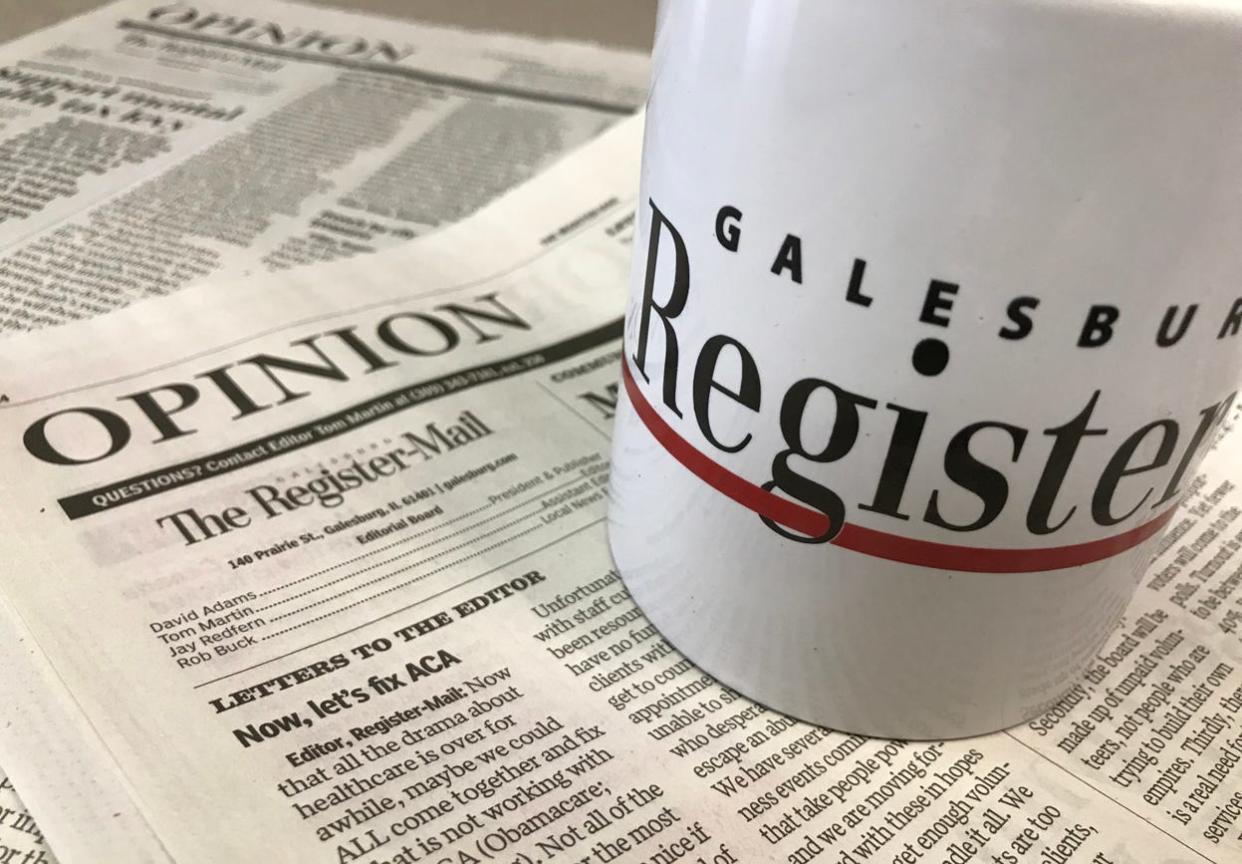LETTER: Founders didn't believe in unlimited individual freedom

- Oops!Something went wrong.Please try again later.
Editor, Register-Mail: There’s a lot of talk of freedom in the news these days. As we live with the continuing pandemic, many individuals have asserted that it is their right to decide whether to wear a mask, whether to get vaccinated, and whether to assemble in large groups indoors. Many invoke the idea of freedom in defending these decisions, and more, assert that they are acting in the best traditions of America.
More: Parents blast Galesburg School Board for continuing mask mandate
It may therefore surprise some people to know that the founders of this country did not believe in unlimited individual freedom. The United States Constitution was rooted in ideas that came out of the Enlightenment, in which philosophers tried to imagine the best possible government for all people.
Without government, philosophers like Thomas Hobbes, John Locke, and Jean Jacques Rousseau contended, everyone would enjoy complete freedom, the liberty to do what they wanted, how they wanted, when they wanted. These philosophers were in agreement that this way of living would be, in the words of Hobbes, “solitary, poor, nasty, brutish and short.”
More: LETTER: Don't remove mask mandates, mandate better masks
Each philosopher agreed that monarchies were oppressive, and so suggested that the best form of government was one in which individuals gave up a portion of their total freedom in order to take care of the community. By giving up the freedom to do what they wanted, how they wanted, when they wanted, individuals would look out for one another and “provide for the common defense” (in the words of the preamble to the Constitution). This was something they called "the social contract."
This was the form of government that the United States adopted. The Constitution clearly articulates that “the people” it governs are a community, who will “establish justice (and) insure domestic tranquility.” It does not suggest that individuals have complete liberty, but rather that we will place our trust in one another and act in one another’s best interests.
More: LETTER: Mask mandates, lockdowns have to go
We see this in the rules for electing representatives to Congress, where we agree to act in community to solve national problems. We see this in the actions reserved to the federal government, too. We cannot all individually negotiate treaties with foreign powers, for example, but the government can on our behalf.
Taking care of our communities is an inescapable part of the way the founders imagined this country. Liberty without responsibility is not. Sincerely — Catherine J Denial, Galesburg
This article originally appeared on Galesburg Register-Mail: Masking: Founders didn't believe in unlimited individual freedom

